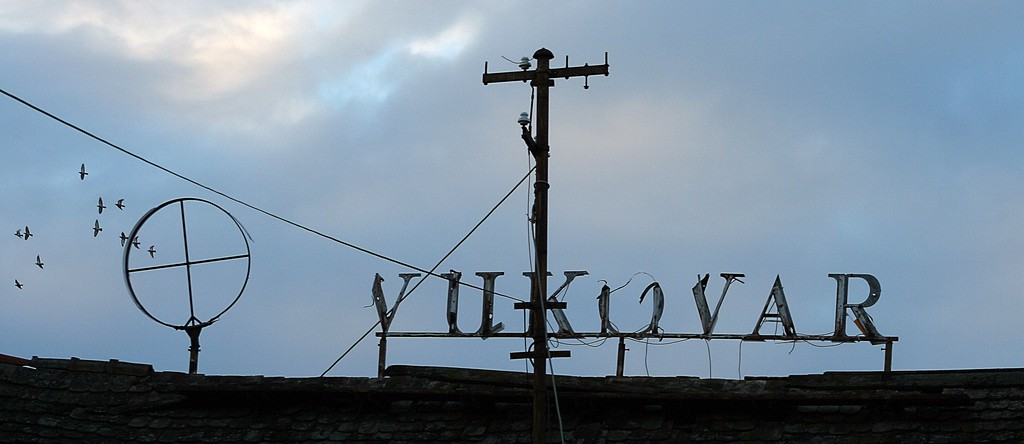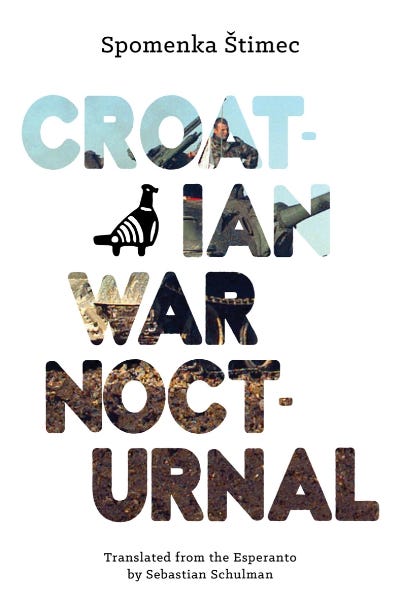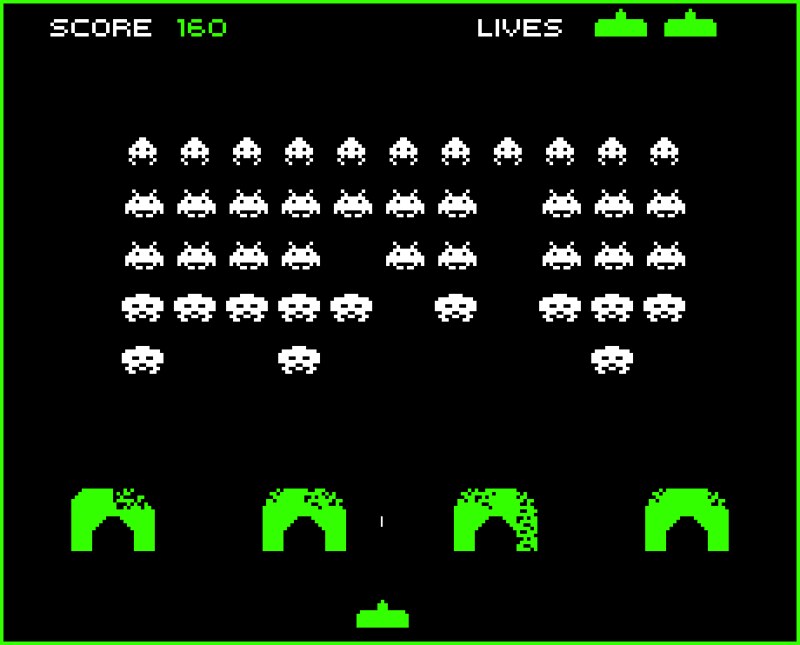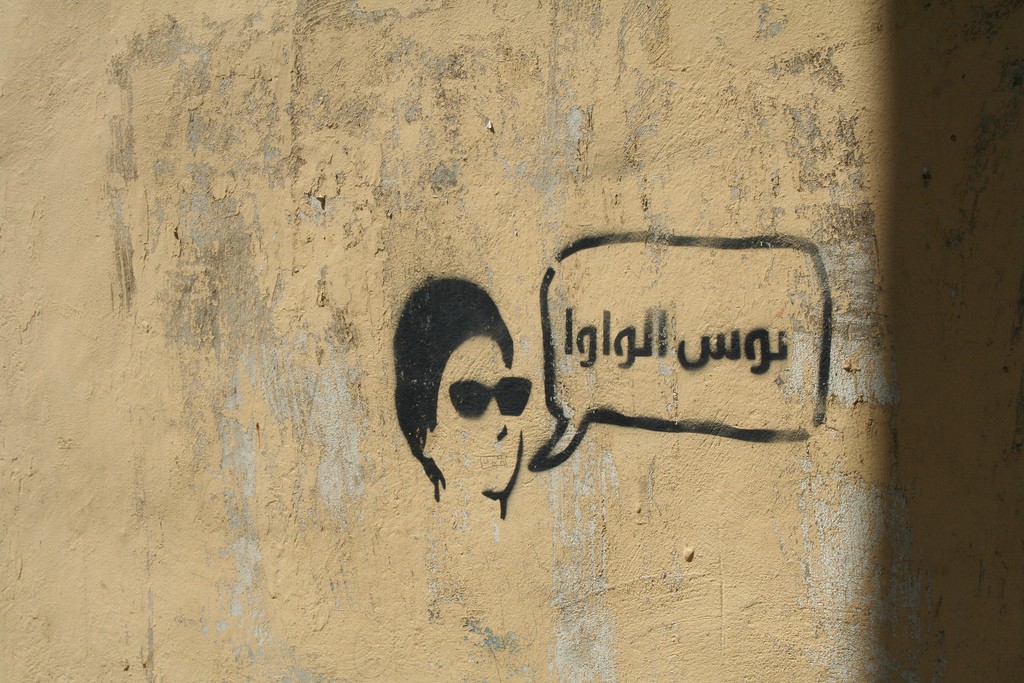Lit Mags
A War Story About Searching for the Disappeared
“René from Vukovar” by Spomenka Štimec

AN INTRODUCTION BY HANNAH JAKOBSEN
Literature about war tends to invite a particular kind of aesthetic quandary, the type of controversy that is exemplified by the misunderstanding surrounding Adorno’s dictum that “to write poetry after Auschwitz is barbaric.” How can one depict violence without fetishizing it? Or convey the horror of what seems unrepresentable? The vignettes that make up Spomenka Štimec’s fictionalized memoir of the Yugoslav Wars, Croatian War Nocturnal, spill onto the page so naturally that these concerns feel irrelevant.

Croatian War Nocturnal compels the reader to ask a different type of question. Štimec invites us to interrogate an incongruity at the core of the conflict she witnessed, which saw a utopian project built on the concepts of unity and brotherhood — Yugoslavia — dissolve into chaos and violence. The book is made up of a series of essays detailing the jarring experiences that mark daily life in wartime, from displacement to the hellish hours spent in shelters during bomb raids.
Štimec’s writing in Croatian War Nocturnal is marked by her humanistic perspective. It would be difficult to imagine her observations as distinct from her background as an activist and a teacher of Esperanto, the language in which she wrote the book. Nor would such a disassociation, it seems, be the author’s intention. Štimec’s writing about her life and those of her loved ones makes evident the role of Esperanto in shaping her experiences and worldview; these lyrical passages are interspersed by explicitly theoretical works — including an essay by L.L. Zamenhof, the creator of Esperanto — which underpin Štimec’s narrative.
Štimec’s writing about her life and those of her loved ones makes evident the role of Esperanto in shaping her experiences and worldview.
Despite the aching intimacy of the wartime chronicles, in the end Štimec’s personal writing doesn’t feel too far off from Zamenhof’s theorizing. The complete work reads narratively but also as a treatise: on the natures of war, coexistence, and hope.
Hannah Jakobsen
Deputy Editor, Phoneme Media
A War Story About Searching for the Disappeared
Spomenka Stimec
Share article
“René from Vukovar”
by Spomenka Štimec
“Is this the Esperanto Center?”
“Yes. Please come in.”
“Can I speak with you? I’m René’s aunt. René, from Vukovar. You know that René’s disappeared. We’ve been looking for him, trying to find him any way we can — the Red Cross, Amnesty International, the Croatian Army Commission on Disappeared Persons. There’s no sign of him.”
The words cascaded from the woman’s mouth. She still remembered how to speak Esperanto. She wasn’t thinking of the famed role that the Universal Esperanto Association played during the First World War. She was reacting instinctively. Esperanto is international. It must be able to do more than these rigid institutions.
René from Vukovar. Vukovar — the new symbol of our destruction. The war’s most suffering victim for whom Yugoslavia ended its seventy-three year existence. The easternmost city in Croatia, on the Danube, decimated by grenades during battles weeks in length. Vukovar’s bombed-out hospital was the site of the city’s last pulse of life. For weeks, neither medicine nor food could reach the city. Its wounded and its children, its pregnant women and its elderly — none of them could be evacuated. The roads into Vukovar had been turned into minefields, impossible to approach.
In these cruel battles, international norms of conduct are no longer observed. This is a war where the flag of the Red Cross is shot like a bullseye. Those shots are fired from the guns of the Yugoslav Army and Serb extremists, those who are convinced that only guns can prevent the democratic dissolution of Yugoslavia, or can stop Croatia, once an integral part of that country, from becoming an independent state. The will of the voters isn’t important. Let the guns decide.
For days on end, those of us who lived in more peaceful regions listened to the news of Vukovar’s suffering. The siege. The massacre of people defending the city. The destruction of its most important buildings. A shortage of blood plasma in the hospital. A shortage of — Day after day, each broadcast more terrible than the last. If we in Zagreb heard the air raid sirens only twice in one day or spent only a few days at a time in our basements, we were ashamed to leave our shelters knowing that the people of Vukovar wouldn’t be able to leave their cellars for weeks. To go draw water from the well meant death. To go bury your bullet-ridden neighbor in the closest garden similarly meant to lie yourself down dead next to him.
The half-destroyed hospital was set up as a refuge for survivors who had lost their homes. How could one live in those ruined buildings? Under the earth, in their cellars and basements, in underground shelters, the inhabitants struggled to survive. One story more horrific than the next. You couldn’t spread butter on your toast in the morning without your conscience gnawing: how can you do this in Zagreb when people were starving in Vukovar?
Vukovar is the easternmost city in Croatia, located in the region of Slavonia. On the other side of the Danube, Serbia begins. When the war began in 1991, the city of Vukovar suddenly became a point of grave strategic importance. It’s a small place, made famous on account of a clay dove. An ancient ritual artifact, the renowned dove is a work of art dating back from sometime between the Neolithic Era and the Bronze Age, discovered in 1938 at the Vučedol archaeological site near Vukovar. Consisting of painstakingly glued-together small pieces, it can now be seen in the Archaeological Museum in Zagreb. When the war broke out, the museums put all of their greatest treasures in basement shelters. The Vučedol Dove probably lies carefully packed away in some box. She spends the war better protected than the citizens of Vukovar itself: already shattered long ago, nothing will happen to her in the present conflict.
It is truly a breathtaking archaeological treasure. I’ve marveled many times at the oblique, angular carvings on the dove’s earthen neck and breast. The dove is a symbol of peace. Vukovar is a symbol of conflict. Heavy winged, the dove has fled through the smoke of the smoldering city of Vukovar. A bird of peace thousands of years old, shot down. At the time when it seems that the bloody twentieth century is finally giving way to the twenty-first, the Balkan passion for primitive weaponry has been reawakened.
I have never been to Vukovar.
Several months before the war began, René wrote to our Esperanto Center in Zagreb to ask if someone might be able to come and give a presentation about the language sometime after “the situation” quieted down. Back then we used the word “situation” to describe the constant state of chaos that swirled around us. The situation back then was typified by a few bombings here and there on the railroad tracks that ran from Belgrade to Zagreb and Zagreb to Belgrade. It had suddenly become dangerous to travel on several railway lines. We would wait for the situation to calm down.
Soon it was impossible to travel by train in any direction. The situation sharpened.
We listened to the news, our stomachs turning to stone. The “situation” had decided to cast us out from our former, fleeting lives. Cruelty moved into our thoughts and invaded our senses.
Lucky were those who didn’t have a television. My eyes held onto the memory of more serene times longer than others — I didn’t spend my nights watching atrocities on the screen. I only heard about them on the radio. The ears are more superficial than the eyes. In the morning, I could not yet tell whether what I heard had really been the truth or just some horrible nightmare.
“I’ll go to Vukovar as soon as it’s possible. In the autumn.” I said that summer, René’s invitation in my hand.
I never made that visit to Vukovar. The autumn never came to Vukovar either. A deadly summertime frost had already ravaged the city.
“When did he disappear?”
“November 17th, 1991. They entered the city and…”
Who entered the city? This was not a question one really needed to raise. We heard about the horrors in Vukovar every day. “Vukovar” was the word with which the morning news began. “They” were the Serb extremists, the White Eagles, the followers of Šešelj or Arkan or whatever they called those monsters who thought that military campaigns could solve everything.
The Serbs nursed an image of their history deeply immersed in myth. They had convinced themselves of the idea that anywhere in Yugoslavia where Serbs lived was in fact Serbia itself. As it was in Vukovar, so it was later in parts of Bosnia. These places were targeted in Serbian campaigns that sought to defend the local “endangered” Serbs. From Belgrade’s perspective, it was necessary to liberate the “transplanted Serbs,” that is, the Serbs who lived in republics other than Serbia. And this is how the catastrophe at Vukovar came to pass: to liberate a city meant to destroy it.
Vukovar has been liberated! announced the newspapers in Belgrade.
Vukovar has fallen! cried the Croatian newscasters.
Fallen into enemy hands. Liberated by the heroes. Two expressions for the destruction of Vukovar.
What did it mean to liberate a city if it no longer existed?
Could Esperanto help find René? I’d not yet given up hope. I liked to believe that Esperanto could.
I messaged the headquarters of the Universal Esperanto Association in Rotterdam.
Rotterdam responded kindly and promptly that the relatives of the missing person, rather than his fellow Esperantists, needed to fill out a questionnaire with all its attendant details in order to submit a formal request to search for the missing person. What is the Last Known Address of the Missing Person(s)? read one question. Božidara Adžije 36 I wrote sadly, trying to imagine a building with the roof still intact and glass still in the windowpanes. What is the Last Known Telephone Number of the Missing Person(s)? Such precise European bureaucracy! Try and call that number and find out what’s happening! Is it not grotesque to ask for these phone numbers? These people are coming from bombed-out cities where even the postal service stopped functioning months ago.
I remember my last visit to René. He’d already married Nevena. They’d just moved to Zadar, her native city. Both of them had trained as dentists and moved into her grandmother’s house while looking for work. Positions were few. René cooked, she complained. The third bottle of oregano this week for his delicacies! He could not get in the habit of measuring out his ingredients from the spice bottles in the cabinet. Grandma’s doilies hung over every surface.
I had met them at an Esperanto club meeting in Zagreb when we were all still students. They were quite affectionate with one another.
“Too affectionate. This won’t end well.”
In Zadar, their wedding photo hung by the mirror. How young they looked! She on his shoulder. He, a gentleman in a white suit and white gloves.
I held the photo in my hand. I liked the image very much.
“We were already beating each other up by the time that was taken” René commented on his first year of marriage. There was still love hidden in his eyes as he turned to her. “Our guest thinks that I’m speaking metaphorically.”
The whole time I was in their home, a welcome poster hung on the wall in my honor.
She had a certain grace. Their life was still good-hearted, the darkness yet unseen. On holidays, he still took the tie from his wedding suit out of the closet.
They showed me their wedding gifts. One was a porcelain replica of the Vučedol Dove. It had broken in transit from his city to hers. “Now it looks more like the real thing” quipped René. Their reglued dove did indeed bare a stronger than usual resemblance to its Neolithic counterpart.
I found out about their divorce only afterwards. He found work in Žegar, a small village where “God says goodnight,” in the vicinity of Zadar. Not far from the village was the Krupa Monastery, an Orthodox church and an outstanding example of Serbian art in the region. The locals took to René quickly. Nowadays it’s necessary to say that he was beloved by both the Serbs and the Croats of the region. René — who had grown up in a Croat Catholic family — was often invited to have dinner with the Serbian Orthodox Bishop. He started collecting regional idioms and even began to write in the local dialect. He sent a long letter to us in Zagreb filled with vulgar, yet witty and nuanced village expressions. He told how he had the best dentist’s office in the region, seeing as how he knew all the latest techniques and mastered all the latest instruments. I didn’t save the letter. I had no idea it would be his last.
From Žegar, René moved back to Vukovar. He found a position in the dental practice at the rubber factory in the nearby town of Borovo. His brother, four years his elder, worked alongside him.
By the middle of September 1991, it was no longer advisable to drive from Vukovar to Borovo — to leave the house meant to be in the line of fire and to put one’s life in constant danger.
The home in which René lived with his brother and mother was a family-owned property left to them by his grandfather Jan, an ethnic Czech who sold agricultural machinery. The machines sold well in the agrarian region of Slavonia and in the city center their family home grew with their prosperity. It looked a bit like a castle. Their wealthy grandfather decorated it with carefully selected oaken furniture.
In September 1991, grenades shattered every window in the house and damaged the roof. During a half-hour lull in the shooting the brothers climbed up to the roof and tried to protect their home with plaster. Then the rains came, dense and cold. The cellar was, fortunately, strong and secure.
One day an oak desk suddenly took flight and slammed through the bathroom wall. No one was injured. Everyone had been in the cellar when the house was hit.
For decades, their grandfather’s grape vines had crawled up the bars of the iron gate that surrounded the courtyard. A grenade ripped the bars out from the cement and flung them onto a neighbor’s lawn.
It was the middle of September when René’s aunt last spoke with him. For hours, she dialed all the numbers she knew in Vukovar trying to reach her relatives in the besieged city. The overloaded phone lines prohibited family members, longing for contact, to get in touch with their relatives. Levelled by bombs, the post offices no longer functioned.
All of a sudden, she succeeded. She could hear clearly how the telephone echoed in Grandpa Jan’s great house. No response. Lost in thought, she let the phone ring. Unexpectedly, René picked up. He grumbled, complaining against those who would wake up their sleeping relatives during one of their brief nighttime breaks from the shooting. His typical wit and spirit, renowned within the family and outside it, was beginning to wither. In his voice, one could hear the pain — there was no exit from this situation. He felt isolated in the isolated city of Vukovar.
This was how René’s aunt interpreted the conversation in retrospect, after she had understood that this was the last time she would get to speak with her nephew.
Later it was no longer possible to call Vukovar.
It had seemed then that Vukovar was the Croatian Hiroshima. But after the fall of the city, it seemed like so much of the country had become Vukovar.
We heard about René’s last day from his brother Robert.
The 17th of November was the high point of the Vukovar tragedy. A round of bullets followed by several knocks on the door. The dog jumped. Robert opened the door.
One of the gunmen had deep lines on his face. He wore a uniform. A beard. A red star on his cap. A white ribbon on his shoulder, the symbol of the White Eagles. Two grenades hung from his belt. And a knife. He held his rifle in his hands.
“How many people are here?”
“Three” said Robert soberly.
The language wasn’t foreign. Besides a few variations, it was the same. This was a war in which the aggressor and the victim could understand each other very well. No interpreter necessary.
“You have three minutes to vacate this building.”
The family wasn’t ready to leave. No one had believed that the worst would happen. And yet it had.
René handed his mother her shoes. In the excitement, he took the wrong ones, her Dutch-made slippers that she wore around the house. She instinctively refused the slippers and put on her boots. A stroke of luck.
Outside, on the other side of the glassless windows, it was November.
Their mother quickly grabbed the family’s box of gold and jewelry. Her hand went straight from the box to thinking about food. She managed to shove a pair of long sausages into her bag. Later she realized that in her haste she took the wrong box, taking instead the one next to the valuables, the box filled with beads. The gold stayed at home, along with the house’s greatest work of art — Grandpa Jan’s marvelous old style fireplaces. As she came to the front steps, she realized that she’d forgotten her eyeglasses.
“My glasses” she said to the uniform, wanting to go back inside.
“Your glasses or your life. Take your pick. Clear enough for you?”
She didn’t go back.
She wasn’t allowed to turn around. That might aggravate him. She sped up.
Coming towards them was a woman from the neighboring street. She had had more than three minutes to pack. Loaded with multiple bags, she stumbled. René’s mother ran ahead to help the fallen woman.
“Where do you think you’re going?” growled the uniform.
“Don’t, Mama, he’ll shoot! Don’t go!” That was René’s voice.
The civilians were gathered together and brought en masse to the Velepromet storage facility.
“Are there Serbs here?”
This was the first way the group was divided. Take the Serbs out from the rest.
Silence.
“Are there any Serbs here?”
Two women announced themselves and were taken away. The non-Serbs remained.
The second way the group was divided was according to sex. Family members were separated. The men who had been led away turned over wine crates in the warehouses and sat down. It was clear that they would be waiting a long time. One day, maybe two. Without food, without water.
The boxes on which the men sat were made for wine bottles, for those famous wines with a picture of the clay dove on the label.
From time to time someone would enter the dark warehouse and abruptly shine a flashlight on the prisoners’ faces. Fear. Eyes squinting, blinded by the light.
Repeatedly, they called the prisoners in one-by-one for questioning. Would the prisoners ever come back?
What time was it when the man called René’s name? He was called as one of three, rather than alone. With him were two officials from the wine industry, the director of distribution and the city vinologist. René put on his glasses and was taken to the door. Eyelids heavy, Robert caught a glimpse of his brother in his peripheral vision. At the door, a ray of light shined from the outside. A scream. Robert recognized René’s voice. There was no doubt. René had cried out. A howl. The last sound his brother would make that would ever reach his ears.
Shots were heard immediately after the scream.
None of the three came back to the warehouse.
That night the brothers’ friend in the warehouse tried to slit his wrists with a crooked piece of sheet metal. He was stopped. Some hours later, his name was called. He never returned.
On the third day, Robert was taken to the barracks outside Vukovar. There, for the first time, water and bread were distributed. A box of sardines. A slice of bread. Their last meal had been eaten at home three days before. Breakfast.
The International Red Cross acted as an intermediary between Zagreb and Vukovar. Relatives in Zagreb waited for the buses to arrive with people from Vukovar. Many came back as a result of population exchanges — so many Croats for so many Serbs.
René’s aunt stood at attention waiting for each bus. A quick glance at each of the crumpled faces. No one familiar. Day after day, a new bus filled with survivors. A hopeful insomnia — maybe in tomorrow’s transport…
“Your nephew is alive. He bandaged my wounds in the camp” reported one man from Vukovar.
The comfort of those words warmed her waiting.
How many buses did she wait for? She held photos of her three missing relatives — René, Robert, and their mother — at the ready in in her handbag. “Have you seen them?” The question repeated itself endlessly.
Her sister, the boys’ mother, turned up on November 22nd dressed in the jumpsuit she had been wearing the day the White Eagle knocked on her door. René’s aunt had left her house that morning later than usual and drove to the hotel where the bus would bring the survivors from Vukovar. It was freezing outside and her car hadn’t wanted to start. René’s mother, coatless, stepped off the bus and met her sister’s gaze. They looked at each other through tears. Only afterwards, at home surrounded by familiar objects, could the mother begin to talk. It would take her hours to explain what they had been through.
The hopeful waiting continued. Eighteen days later, from a bus filled with people brought in exchange for Serbs, Robert emerged. René’s scream was still visible in his face. The aunt thawed out his frozen spirit with the warmth of family.
They waited for every subsequent bus of refugees from Vukovar. René wasn’t in any of them. Neither was his name on any list of dead, wounded, or imprisoned.
No one has ever found René.
Many returnees planted seeds of hope: someone saw him in the camp in Stajićevo, others in Niš, three people saw him in Banjica. A few claimed that they heard his “yes” during a roll call.
The women prayed.
God, thank you for saving one boy. Bring back the other one from whenever he is.
He disappeared in November 1991.
In February we celebrated his birthday without any hint of him.
Summer gallops closer.
At night, an uncertain idea awakens us.
Scream.
Hope.








